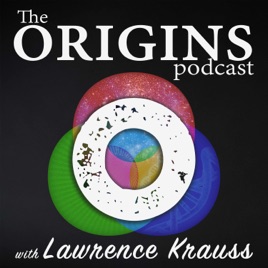
Advertise on podcast: The Origins Podcast with Lawrence Krauss
Rating
4.4 from
Country
This podcast has
84 episodes
Language
Publisher
Explicit
No
Date created
2019/06/08
Average duration
140 min.
Release period
23 days
Description
The Origins Podcast features in-depth conversations with some of the most interesting people in the world about the issues that impact all of us in the 21st century. Host, theoretical physicist, lecturer, and author, Lawrence M. Krauss, will be joined by guests from a wide range of fields, including science, the arts, and journalism. The topics discussed on The Origins Podcast reflect the full range of the human experience - exploring science and culture in a way that seeks to entertain, educate, and inspire. lawrencekrauss.substack.com lawrencekrauss.substack.com
Social media
Check The Origins Podcast with Lawrence Krauss social media presence
Podcast episodes
Check latest episodes from The Origins Podcast with Lawrence Krauss podcast
A Dialogue with Label-Defying Journalist Jonathan Kay
2024/02/16
I first became aware of Jonathan Kay through his writing for the online magazine, Quillette. And for full disclosure, I got to know him better because he is one of their editors, and he has edited several of my own pieces for that magazine. Before that, however, I had been a fan of his writing, and was happy to be able to have an extended conversation with him about writing, journalism, false news, and politics, to name a few of the topics we discussed.
Our dialogue occurred shortly after the appearance of a comprehensive 15,000 word piece of investigative journalism piece by Kay about a supposed organized sex-ring in the Psychology Department at McMaster University in Canada. Outrageous claims had surfaced, which ignited the university, and the local media, destroying the careers of various faculty and others, all of which eventually turned out to be false. Kay carefully explored how the original story developed, what factors prompted the University to act, and how local media played up the salacious claims without much investigation. It was a typical example of how false news can propagate, and also an indictment of the way Universities handle such claims, and local media may promote them.
The appearance of this story gave us the opportunity to talk about the state of journalism in general. Jonathan has had a unique career and background, which made him a particularly interesting dialogue partner about this issue. He actually was educated as a metallurgical engineer, and following that he pursued a law degree at Yale University, and was a tax lawyer before eventually becoming disenchanted and deciding to pursue a career in writing and journalism.
He also defies easy labelling. While he was a founding editor of the conservative Canadian newspaper The National Post, he also helped Liberal Prime Minister Justin Trudeau write his memoirs. It is Jonathan’s non-ideological bent, perhaps due to his early training as a scientist and engineer that makes his perspective on today’s news so refreshing. We discussed his own background, what got him into writing, his experiences, and stories including the recent claimed Indigenous Residential School scandal in Canada, and the controversy surrounding the naming of the James Webb Space Telescope in the U.S.
When I contacted Jon this week to let him know the podcast is coming out, I learned that he had just completed a lengthy investigative piece about University of New Hampshire astrophysicist/gender studies social justice warrior Chanda Prescod Weinstein who, in the process of claiming victimization for herself and others, has apparently been bullying, harassing, and intimidating a host of others online, leading to complaints recently being filed at her institution. It coincidentally just came out yesterday, so this podcast is particularly timely. I hope you enjoy the discussion as much as I enjoyed talking to this fascinating man.
As always, an ad-free video version of this podcast is also available to paid Critical Mass subscribers. Your subscriptions support the non-profit Origins Project Foundation, which produces the podcast. The audio version is available free on the Critical Mass site and on all podcast sites, and the video version will also be available on the Origins Project Youtube channel as well.
Get full access to Critical Mass at lawrencekrauss.substack.com/subscribe
more
A dialogue with Brian Keating, at the San Diego Air and Space Museum
2024/02/02
In mid October the Origins Project Foundation ran two public events in California. The second event was held at the Air and Space Museum in San Diego. I had asked my colleague Brian Keating, who teaches at UCSD and is a Trustee of that museum, whether he might be interested in doing a public dialogue together that we could later both broadcast on our respective podcasts. He and I have each appeared before on each other’s podcasts, and I knew that we could have the kind of comfortable, informative, and fun conversation that might appeal to a live audience, which would make for a different kind of podcast.
I am happy to present here the video record of that live-audience podcast, and the Q&A with the audience that was recorded right after it. Brian and I discussed many things, from forefront cosmology, to the nature of teaching and doing research, as viewed by an experimentalist and a theorist respectively, as well as broader questions associated with science in society today. The questions afterwards were equally interesting. I hope you enjoy both as you listen to or watch the podcast.
As always, an ad-free video version of this podcast is also available to paid Critical Mass subscribers. Your subscriptions support the non-profit Origins Project Foundation, which produces the podcast. The audio version is available free on the Critical Mass site and on all podcast sites, and the video version will also be available on the Origins Project Youtube channel as well.
Get full access to Critical Mass at lawrencekrauss.substack.com/subscribe
more
Greg Lukianoff: : The Canceling of the American Mind. Free Speech and Academia
2023/12/27
Greg Lukianoff is a First Amendment lawyer by training. During his education he began to see how, even among organizations ostensibly created to help protect free speech, how actual free speech was improperly being conflated with harassment or bullying. When he went to work as a legal director of the nascent Foundation for Individual Rights in Education in around 2000, he quickly discovered that in academia, the one place where free speech and open inquiry should be valued above all else, actual free speech was under attack. In the intervening two decades, during which he rose to become director of that Foundation, now renamed to encompass the fact that the attacks on free speech that began in academia have proliferated throughout our society, he has actively worked to fight these attacks. Beyond his legal work, he has become a prolific writer. His 2018 book, co-written with Jonathan Haidt, entitled The Coddling of the American Mind, was influential in encouraging debate and discussion regarding the origins of the victimization mentality that was becoming prevalent in Western Society.
I have been admirer of Greg’s for some time, and have wanted to have a dialogue with him on the podcast. This year, with Rikki Schlott, Greg published The Canelling of the American Mind: How Cancel Culture Undermines Trust, Destroys Institutions and Threatens us All, and it provided us the ideal opportunity to get together to discuss both his own personal experiences , and also the general concerns we both have about the issues that form the heart of the new book.
What followed was a fascinating conversation about issues we should all care about. Regular readers of Critical Mass and listeners to The Origins Podcast will be aware of some of the examples and concerns we discussed, but I expect will nevertheless be surprised by the ubiquitous infiltration of cancel culture ideas into our society. We actually begin by defining Cancel Culture, a term that has often been misused and misunderstood in the popular media, and then discuss a variety of examples, before closing with a brief discussion of the ways that we can possibly combat it to produce a more tolerant, democratic society, and to save higher education as well. I hope you are provoked, enlightened, and energized by the conversation.
As always, an ad-free video version of this podcast is also available to paid Critical Mass subscribers. Your subscriptions support the non-profit Origins Project Foundation, which produces the podcast. The audio version is available free on the Critical Mass site and on all podcast sites, and the video version will also be available on the Origins Project Youtube channel as well.
Get full access to Critical Mass at lawrencekrauss.substack.com/subscribe
more
Scott Aaronson: From Quantum Computing to AI Safety
2023/12/15
Scott Aaronson is one of the deepest mathematical intellects I have known since, say Ed Witten—the only physicist to have won the prestigious Fields Medal in Mathematics. While Ed is a string theorist, Scott decided to devote his mathematical efforts to the field of computer science, and as a theoretical computer scientist has played a major role in the development of algorithms that have pushed forward the field of quantum computing, and helped address several thorny issues that hamper our ability to create practical quantum computers.
In addition to his research, Scott has, for a number of years, written a wonderful blog about issues in computing, in particular with regard to quantum computing. It is a great place to get educated about many of these issues.
Most recently, Scott has spent the last year at OpenAI thinking about the difficult issue of AI safety, and how to ensure that as AI systems improve that they will not have an unduly negative or dangerous impact on human civilization. As I mention in the podcast I am less worried than some people, and I think so is Scott, but nevertheless, some careful thinking in advance can avert a great deal of hand wringing in the future. Scott has some very interesting ideas that are worth exploring, and we began to explore them in this podcast.
Our conversation ran the gamut from quantum computing to AI safety and explored some complex ideas in computer science in the process, in particular the notion of computational complexity, which is important in understanding all of these issues. I hope you will find Scott’s remarks as illuminating and informative as I did.
As always, an ad-free video version of this podcast is also available to paid Critical Mass subscribers. Your subscriptions support the non-profit Origins Project Foundation, which produces the podcast. The audio version is available free on the Critical Mass site and on all podcast sites, and the video version will also be available on the Origins Project Youtube channel as well.
Get full access to Critical Mass at lawrencekrauss.substack.com/subscribe
more
Dialogues with Richard Dawkins
2023/11/30
Richard Dawkins and I have appeared together onstage many times, been the subject of the documentary The Unbelievers, and have collaborated on various writing projects as well. Thus it may come as a surprise to you to learn that each time we get together, we find new things to discuss and learn from each other. It surprises us as well.
This fall we agreed to appear onstage together at two separate events co-sponsored by The Origins Project. The events, entitled Changing Minds in Changing Times were coordinated by Atheist UK and were in London and Birmingham. In both events I gave short presentations, and at the end of the event Richard and I appeared together onstage for a dialogue. At the first event I was able to discuss with Richard his latest book, Books do Furnish a Life, and at the second event, for the first time, Richard interviewed me, for his new podcast, The Poetry of Reality.
We have combined these two dialogues here into a single podcast. Together they cover a broad collection of subjects, from science, to science communication, and finally to the threats to free inquiry now occurring in higher education.
As always, I find it an absolute pleasure to spend time conversing with Richard. He is charming, eloquent, and insightful. I hope you enjoy these newest discussions as much as I did.
As always, an ad-free video version of this podcast is also available to paid Critical Mass subscribers. Your subscriptions support the non-profit Origins Project Foundation, which produces the podcast. The audio version is available free on the Critical Mass site and on all podcast sites, and the video version will also be available on the Origins Project Youtube channel as well.
Get full access to Critical Mass at lawrencekrauss.substack.com/subscribe
more
Carlo Rovelli: From Dante to White Holes
2023/11/03
Carlo Rovelli is well known as a popularizer of science. His short book, Seven Brief Lessons on Physics, was an international bestseller. I have known Carlo as a physicist ever since he used to visit my Physics Department colleague, Lee Smolin, at Yale, when I was a Professor there. Carlo and Lee were part of a small group of physicists pioneering an idea called ‘Loop Quantum Gravity’ as a way to try and unify General Relativity and Quantum Mechanics. Less well known among the public than its chief competitor, String Theory, and also less popular among physicists as a whole, Loop Quantum Gravity is nevertheless an equally serious attempt to address the vexing paradoxes associated with of quantizing General Relativity.
Black Holes are the place in physics where the various problems of quantum gravity become manifest. If Stephen Hawking was correct, and black holes do completely evaporate through quantum processes that result in the emission of thermal radiation, then it appears that the information about what fell into the black hole in the first place will be forever lost. But this violates a central feature of quantum mechanics, which preserves information. At the same time, the final state of classical black hole collapse involves a singularity of infinite density. Most physicists expect this singularity to be removed in a quantum theory of black holes.
Rovelli argues that near the singularity of a black hole quantum processes can change a black hole to be a ‘white hole’, the time reversed version of a black hole. While anything that falls into a black hole stays there, everything inside a white hole eventually reappears. If Carlo’s ideas were correct, they could go a long way toward potentially resolving black hole paradoxes.
It is a big ‘If” however, and I remain skeptical. Nevertheless I wanted to discuss these ideas with Carlo on this podcast for a variety of reasons. First, any such discussion will illuminate a lot about the physics of black holes. Secondly, I think it is useful for laypeople to listen to physicists debate and discuss ideas at the forefront, presenting challenges to each other, being willing to openly question, and doing all of this with a sense of mutual respect.
At the same time, because I share Carlo’s great interest in both popularizing science, as well as connecting science and culture, I was extremely interested in discussing his motivations and thoughts about these important areas, and I was not disappointed. I hope listeners will find our discussions about science, literature, and politics equally enlightening.
As always, an ad-free video version of this podcast is also available to paid Critical Mass subscribers. Your subscriptions support the non-profit Origins Project Foundation, which produces the podcast. The audio version is available free on the Critical Mass site and on all podcast sites, and the video version will also be available on the Origins Project Youtube channel as well.
Get full access to Critical Mass at lawrencekrauss.substack.com/subscribe
more
Robert Sapolsky: The Illusion of Free Will
2023/10/18
I have been a fan of Robert Sapolsky’s for a long time. He is a creative force, with wide ranging knowledge, from primatology to neuroscience, and he is also a wonderful expositor of science. His previous book, Behave, was a wide ranging exploration of human behavior, at its best and worst. I have been wanting to do a podcast with him for some time, and the launch of his new book, Determined, gave us the opportunity. I got an advanced copy and we recorded this a few weeks ago, so that this podcast could post on the book’s publication date.
Had it been anyone else, I admit I wouldn’t have bothered to go through the book. I have long felt the issue of free will is overplayed. The laws of physics are deterministic, and since biology and chemistry are based on physics, I have never doubted that free will is an illusion, but have also felt that for all intents and purposes the world we live in is indistinguishable from a world with free will, so we should take responsibility for our actions.
As is often the case when reading Robert’s works, my view has now become more nuanced. His book masterfully discusses the neurobiology behind the illusion of free will, what actually interests me the most, and he effectively demolished claims of numerous philosophers, including Dan Dennett and others, that some magic occurs between the level of neurons and the level of the full brain that allows for some uncaused behavior.
Along the way, we are taken on a masterful and fun ride through modern neurobiology. And at the end, Sapolsky confronts the more serious question of crime and punishment in a world where free will is an illusion, and convincingly argues that in a world where bad luck early on gets multiplied throughout ones life, society can far more effectively and honestly deal with crime by abolishing the notion of punishment, replacing it with behaviorally more effective methods.
In our podcast, as we always do, we discussed Sapolsky’s origins. What got him interested in science. How did his 30 years working with primates impact on his view of humans, and more. I found it a fascinating discussion, and I hope you will too.
As always, an ad-free video version of this podcast is also available to paid Critical Mass subscribers. Your subscriptions support the non-profit Origins Project Foundation, which produces the podcast. The audio version is available free on the Critical Mass site and on all podcast sites, and the video version will also be available on the Origins Project Youtube channel as well.
Get full access to Critical Mass at lawrencekrauss.substack.com/subscribe
more
Peter Singer: From Animal Liberation to Effective Altruism
2023/10/07
I have felt privileged to know the remarkable scholar Peter Singer as a friend and colleague for over a decade. We first met, I believe, in the context of atheism, but our discussions have ranged far more broadly, and his impact on my own thinking has been substantial. He and I engaged in a public dialogue in Arizona eight or nine years ago, and preparing for that discussion changed my views about world in many ways. Peter actually had an impact on my life even earlier than that, as when my daughter was very young. The late Katharine Thalberg, who ran the famous Explore Bookstore in Aspen where I often did book signings, and who, along with her spouse Bill Stirling, rang an unsuccessful campaign to ban furs in Aspen, saw how much my then seven year old loved her dogs, and she gave Lilli a copy of Singer’s 1975 book Animal Liberation, to read when she got older. I don’t know if Lilli ever did read it, but she became a vegetarian well before I did.
Peter, perhaps more than anyone else alive, has effectively promoted the cause of animal welfare, coining the term “species-ism” to describe the fact that a proper ethics should include an equal consideration of welfare for not just all people, but all creatures. He has backed up his position with a comprehensive discussion of the disgusting manner in which animals are made to suffer in the context of industrial scale food preparation for humans. That includes not just cattle, pigs, and chickens, but also fish. Whether or not one continues to choose to eat meat, we should all at least be aware of what we are signing on for by doing so.
This year Peter updated Animal Liberation so that it is called Animal Liberation Now, to record the developments that have taken place in the almost 50 years since the book first appeared. His arguments remain as dramatic and clear as they were then, and what I particularly enjoy about Peter is how he combines the philosopher’s tools of analytical logic, with a scientist’s tools of gathering of evidence. The end result is a compelling treatise, and I was thrilled that Peter agreed to sit down again for a comprehensive discussion of the ideas in his book.
We took advantage of this opportunity to talk about Peter’s interest in Effective Altruism, about which he has also written extensively. This is the effort to do the most good in the world by empirically examining both what sorts of charities do the most good for the most people, and also exploring how much of one’s own resources one can readily part with in the process without substantially changing one’s lifestyle. Once again, his discussions may change the way you think, and act.
I hope you enjoy our comprehensive dialogue, for which he generously contributed significant time, as much as I did. And I hope it provokes the same kind of personal reflections for you as it did for me.
As always, an ad-free video version of this podcast is also available to paid Critical Mass subscribers. Your subscriptions support the non-profit Origins Project Foundation, which produces the podcast. The audio version is available free on the Critical Mass site and on all podcast sites, and the video version will also be available on the Origins Project Youtube channel as well.
And a reminder that The Origins Project Foundation is programming two live events in Southern California museums. Oct 15th, at the Bowers Museum, I will be giving a presentation on my new book, and Oct 17th Brian Keating and I will be recording a joint podcast at the San Diego Air and Space Museum. Go to originsproject.org for more info and the opportunity to purchase tickets.
Get full access to Critical Mass at lawrencekrauss.substack.com/subscribe
more
Hakeem Oluseyi: An unexpected life in Science, and unpopular truths
2023/09/20
I confess that Hakeem Oluseyi had not really risen on my radar screen until the last year or two. I was aware of the National Society of Black Physicists, having sometimes gotten notices about is meetings, but, being generally unsupportive of current efforts to compartmentalize scientists by their identity, I hadn’t really paid much notice to it. Then, in one of those ironies that periodically makes one feel better about the vicissitudes of fortune, I learned more about him only after people had attempted to cancel him.
When I read about Hakeem’s brave and impressive campaign to uncover the truth about James Webb after a small but unduly loud group of physicists, whose actions seem to be centered about their mutually celebrated victimhood, argued that the James Webb Space Telescope should be renamed, my interest in him, along with my respect for him, rose considerably.
Prompted by this newfound interest, I read a book he had co-authored, entitled, A Quantum Life: My Unlikely Journey from the Street to the Stars, and I was fascinated by the remarkable transformation of a hillbilly turned drug dealer into an academic. Here was someone who could have reveled in begin a victim by lashing out in hate, but instead was inspired to improve himself and those around him. I decided I wanted to delve deeper into the man, his life, his science, and his recent unfortunate experiences while holding firm to the search for truth in a podcast. It was a fun, and fascinating few hours. Hakeem and I both like to joke as well as tell stories, and we are both serious about the effort to understand nature, and to share our enthusiasm about that effort. I hope the combination of our mutual enjoyment about life and science, along with learning about his own story will inspire, entertain and inform. I certainly enjoyed our discussion and I hope you will as well.
As always, an ad-free video version of this podcast is also available to paid Critical Mass subscribers. Your subscriptions support the non-profit Origins Project Foundation, which produces the podcast. The audio version is available free on the Critical Mass site and on all podcast sites, and the video version will also be available on the Origins Project Youtube channel as well.
And a reminder that The Origins Project Foundation is programming some live upcoming events, including a live podcast with Richard Dawkins in Birmingham Sept 25th, and two live events in Southern California museums. Oct 15th, at the Bowers Museum, I will be giving a presentation on my new book, and Oct 17th Brian Keating and I will be recording a joint podcast at the San Diego Air and Space Museum. Go to originsproject.org for more info and the opportunity to purchase tickets.
Get full access to Critical Mass at lawrencekrauss.substack.com/subscribe
more
The Best of the Origins Podcast, Part 1:
2023/09/01
As promised at the beginning of this month, here is the first of two “Best of” selections from the Origins Podcast. I apologize that this hasn’t come out sooner, but the lazy days of August caught up with all of our production team. In any case, here, on the last day of August (in all US timezones), enjoy this collection of great clips from many of our exciting guests over the first two years of the podcast. These were all recorded before the pandemic and so we were able to travel to talk with my guests at their location, or bring them to our origins studio. As a result, they were all shot with 3 cameras, so the video record is better than one gets on zoom. This video version is available now to paid subscribers, and this audio version is available to all subscribers. A Youtube version will be released later this week. I hope you enjoy them as much as we enjoyed putting this compilation together.
For those of you who are Origins veterans, we will give you a chance to relive the highlights from podcasts with some of the most remarkable scientists, artists, and writers on the planet. For those of you who are newer subscribers this will give you a chance to see some tidbits from some fascinating conversations with fascinating individuals, and perhaps encourage you to explore our backlist for the full discussions.
We will return with new content in September, and will release the second “Best Of” compilation sometime later in the fall. Once again, thanks for your support of Critical Mass, which remains an essential part of allowing The Origins Project Foundation to continue its programming.
Enjoy!
Get full access to Critical Mass at lawrencekrauss.substack.com/subscribe
more
Bart Ehrman: Revelations about Revelation...and more
2023/07/07
I have admired Bart Ehrman’s writing for more than a decade. I remember how profoundly reading Christopher Hitchens’ God is Not Great reminded me of how little I had really understood about the scriptures. For me, Bart Ehrman took over from there. I recalled reading his 2014 masterpiece How Jesus Became God, which made it clear that the modern Western Interpretation of the Holy Trinity differs significantly from the earliest impressions of Jesus, and moreover that the notion of humans intermingling with deities has a long and checkered history. He also made it clear that the Resurrection, perhaps the cornerstone of Modern Christianity, is highly suspect, based on burial traditions at theme.
I have been trying to work out a time to record a podcast with Bart for some time, and was fortunate that his schedule opened up recently, following the publication of his newest book, Armageddon: What the Bible Really Says About The End. This book provides a detailed analysis of the Book of Revelations, and describes how perhaps the most iconic modern interpretation of End Times, The Rapture, is a modern mythological invention and is itself not even scriptural.
In our dialogue we explored Bart’s own intellectual adventure from fundamentalist youth to Biblical Scholar, from true believer to skeptical historian. We then explored some of the most enlightening aspects of his writing. It was a fascinating, entertaining, and informative discussion, and one that I hope will be widely viewed. I hope you enjoy listening to it as much as we enjoyed recording it.
As always, an ad-free video version of this podcast is also available to paid Critical Mass subscribers. Your subscriptions support the non-profit Origins Project Foundation, which produces the podcast. The audio version is available free on the Critical Mass site and on all podcast sites, and the video version will also be available on the Origins Project Youtube channel as well.
Get full access to Critical Mass at lawrencekrauss.substack.com/subscribe
more
Martin Rees: If Science is to Save Us, Part 2
2023/06/09
This is part two of the second podcast dialogue we are airing with renowned astrophysicist, Astronomer Royal, and former President of the Royal Society, Lord Martin Rees. The first time I sat down with Martin for the Podcast we discussed his life in science, and topics ranging from the state of modern cosmology to the potential conflicts between science and religion (which he views as minimal, and I don’t). Martin’s thinking, and his expertise, go far beyond these topics however. Based on his experience at the Royal Society, as an elected member of the House of Lords, and working with the Center for Existential Risk at Cambridge, Martin has thought carefully about the challenges we face as a society in the 21st century, and how science can be marshaled to help us address these challenges. He has written a new book on the subject called If Science is to Save Us. I thought it would be useful and interesting to sit down with Martin to discuss the ideas he raises there, and our conversation turned out to be so wide-ranging that we are presenting it in two separate episodes of the podcast. I am sure you will find his thoughtful and incisive comments both provocative and inspiring. As always, I benefitted greatly from my conversation with him, and I hope you do as well.
As always, an ad-free video version of this podcast is also available to paid Critical Mass subscribers. Your subscriptions support the non-profit Origins Project Foundation, which produces the podcast. The audio version is available free on the Critical Mass site and on all podcast sites, and the video version will also be available on the Origins Project Youtube channel as well.
Get full access to Critical Mass at lawrencekrauss.substack.com/subscribe
more
Podcast reviews
Read The Origins Podcast with Lawrence Krauss podcast reviews
yassijiro
2023/07/16
Love Woody Allen
Can’t thank you enough for the Woody Allen interview. That was a treat and a blessing. Please do it again ! Really appreciate it.
JEG439
2024/01/20
Could be much better
Origins would be a much better podcast if the guests were allowed to speak more. The host is constantly talking over his guests. It’s very annoying n...
more
captain bluewater
2023/12/19
Two Different Answers Re Beauty
I was a bit astonished when I listened to Mr. Krauss interview Sabine Hossenfelder then Cormac McCarthy.He acted with Sabine (her book is Lost in Beau...
more
Qfactor
2023/12/16
And now, back to me
Great guests but dimmed by the host’s unrelenting need to hear himself talk.
cjvail
2023/12/01
Broadcasting
Talk into the microphone’s properly please.
Edwardsmarcom
2023/12/01
Krauss and Dawkins on a Boomer rant
When you speak of “woke” you sound like old men out of touch with young people. Do you ask why they are so sensitive? Do you talk to colleagues about ...
more
Tony T58
2023/11/15
Fascinating topics, poor interview technique
Fascinating guests, and I welcome the robust debates between them and the host, I just wish that Krauss would learn to let guests finish their sentenc...
more
redtail-hawk
2023/11/04
The Lawrence Krause Show
There are some great guests on this show but they become minor characters as they are dominated by Krause’s inordinate interest in himself. It is call...
more
Gryphy🐶
2023/08/14
Really, Woody Allen??
Before listening to the Woody Allen episode, I recommend finding out more about Allen’s background in Pulitzer Prize Winning Journalist Ronan Farrow’s...
more
220volt1974
2023/06/23
Great guests and topics completely ruined by Krauses's interview style.
As many have already mentioned, he constantly interrupts guests mid-sentence. Either by steering the conversation to himself or with annoying "oh yeah...
more
Podcast sponsorship advertising
Start advertising on The Origins Podcast with Lawrence Krauss & sponsor relevant audience podcasts
You may also like these physics Podcasts
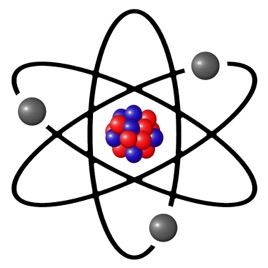
5
6
6
Atomic Interviews
Luke Tower
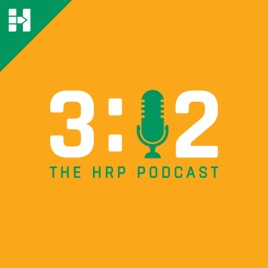
5
16
41
3:12 - The HRP Podcast
HRP Associates Inc.
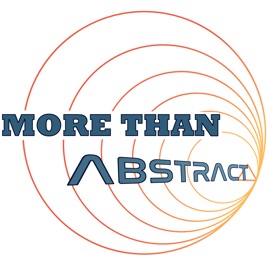
0
0
36
More than Abstract
More than Abstract
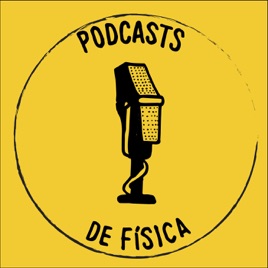
0
0
40
Podcasts de Física
fisicapodcasts
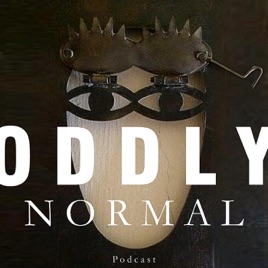
4.9
34
24
Oddly normal
Van Nguyen
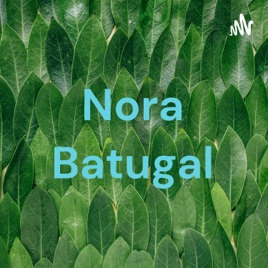
0
0
1
Nora Batugal
NORA BATUGAL
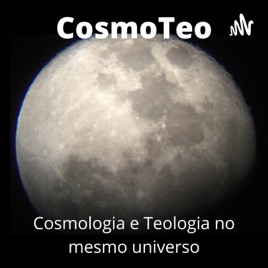
0
0
193
CosmoTeo
Alexandre Fernandes

0
0
1
THEOARMI
Arjit Mishra
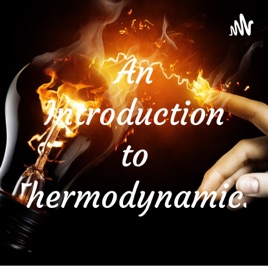
0
0
1
An Introduction to Thermodynamics
Dr. Sreeja V G
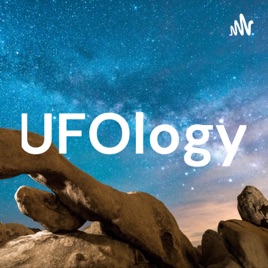
0
0
1
UFOlogy
brevin striewe




